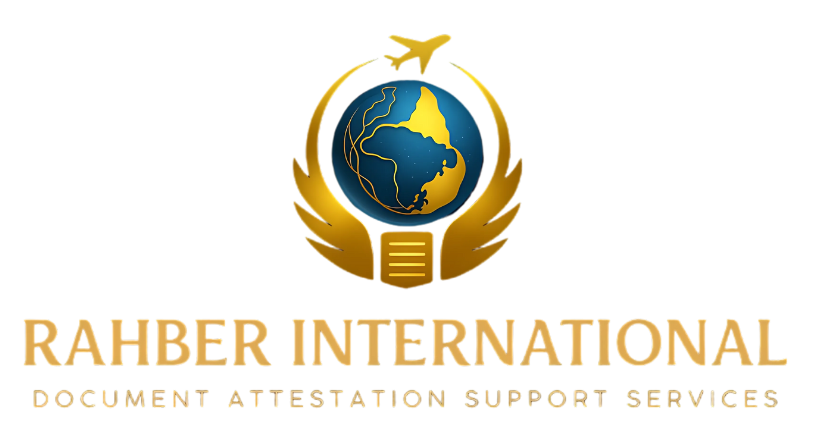Gulf Embassy Attestations (Qatar, Oman, Bahrain, Kuwait): Complete Guide
Introduction
If you’re planning to move to the Gulf for work, study, or business, you’ll need Gulf Embassy Attestation. Countries like Qatar, Oman, Bahrain, and Kuwait require official verification of your documents before they are accepted. This process confirms that your certificates are genuine and legally valid.
What is Gulf Embassy Attestation?
Embassy attestation is the process where your documents are authenticated by the embassy of the country you’re applying to. For the Gulf, it applies to Qatar, Oman, Bahrain, and Kuwait. Without attestation, your documents won’t be accepted for visas, jobs, or business activities.
Why Do You Need Gulf Embassy Attestation?
- Employment – Employers require attested degrees and certificates.
- Education – Universities in Gulf countries ask for attested academic documents.
- Family Visas – Birth and marriage certificates must be attested.
- Business – Trade licenses and contracts require embassy attestation.
Documents That Require Gulf Embassy Attestation
Educational Documents
- School certificates
- Diplomas and degrees
- Transcripts and mark sheets
Personal Documents
- Birth certificates
- Marriage and divorce certificates
- Death certificates
Commercial Documents
- Company registration papers
- Power of attorney
- Partnership agreements
Step-by-Step Process for Gulf Embassy Attestation
Step 1 – Local Verification
Documents must be verified first by the issuing authority such as your board, university, or registrar.
Step 2 – IBCC/HEC Attestation
- IBCC for school and college certificates
- HEC for higher education degrees
Step 3 – MOFA Attestation
After IBCC/HEC, all documents must be attested by the Ministry of Foreign Affairs in your home country.
Step 4 – Gulf Embassy Attestation
Finally, the respective Qatar, Oman, Bahrain, or Kuwait embassy attests the documents.
Country-Specific Gulf Embassy Requirements
Qatar Embassy Attestation
Qatar requires educational documents to be verified by the Ministry of Education along with MOFA attestation before submission to the embassy.
Oman Embassy Attestation
Oman generally accepts attested educational, personal, and commercial documents once verified by MOFA.
Bahrain Embassy Attestation
Bahrain may request additional verification letters from universities or issuing authorities.
Kuwait Embassy Attestation
Kuwait is strict about following the correct sequence – local verification, HEC/IBCC, MOFA, and then embassy.
Processing Time and Duration
- On average, it takes 2–6 weeks depending on the document type and embassy workload.
- Delays often happen due to incomplete documents or missing verifications.
Fees for Gulf Embassy Attestation
- Charges vary for each embassy and type of document.
- Additional costs may include courier charges, translation fees, and service provider expenses.
Common Challenges in Gulf Attestation
- Rejection due to incomplete verification.
- Delays if the sequence is not followed.
- Embassy-specific additional requirements.
Tips for Smooth Attestation
- Always keep both originals and copies.
- Follow the required order: Local → IBCC/HEC → MOFA → Embassy.
- Hire professional services if you don’t want to deal with delays.
Benefits of Gulf Embassy Attestation
- Legal acceptance in Gulf countries
- Smooth job application process
- Easier admission to universities
- Hassle-free family visa processing
Conclusion
Gulf Embassy Attestation for Qatar, Oman, Bahrain, and Kuwait is an essential step if you’re planning to live, work, or study in the region. With the right preparation and proper sequence, you can get your documents attested without delays.
